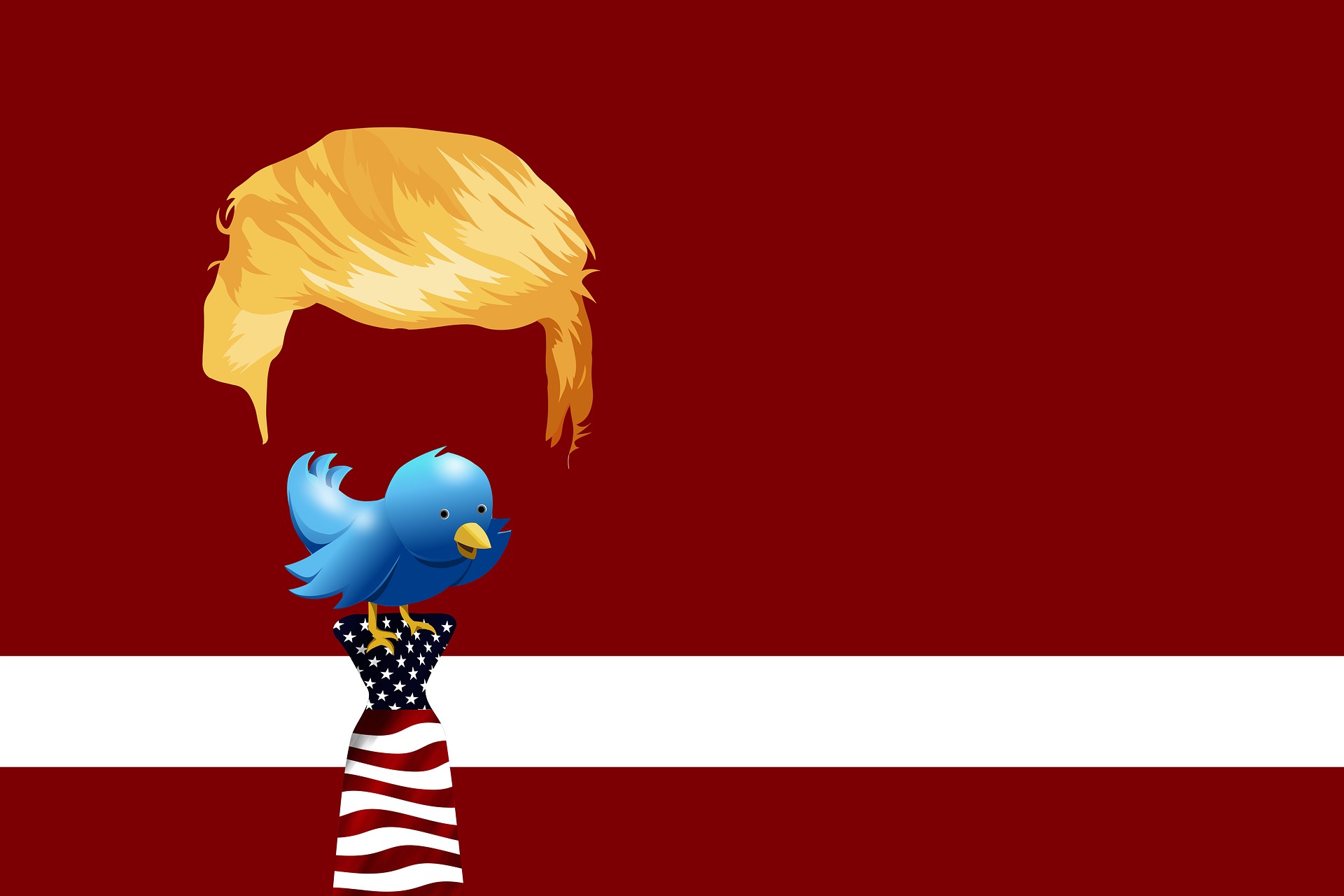"Get the facts about freedom of speech and Twitter!"

In agony, many US citizens were awaiting the night of November 3rd when the first voting results for the US presidential election were expected to trickle in. Having regard to what happened since May and what was bound to happen in the weeks following the election, Twitter, presumably, was especially nervous.
But what happened, and what does Twitter have to do with the aftermath of this year's election? Already in May Twitter, for the first time, flagged a Tweet by President Trump on the validity of mail-in ballots with a warning, advising the users to "get the facts about mail-in ballots." From that moment on Twitter, which had contributed significantly to Trump's fame and success, found itself to be under constant attack and political pressure from the top of the United States´ executive.
Then, on election night, the incoming results suddenly shifted in favour of Joe Biden, and the more likely an election loss of Trump became, the more enraged and aggressive the President became on Twitter. More and more Tweets from Trump's official Twitter account contained verifiable falsehoods about the election process and claimed early victories in essential swing states or the election in general. Twitter reacted promptly and flagged almost every single Tweet by the President with various warnings such as: "This claim about election fraud is disputed," or "Official sources may not have called the race when this was Tweeted." In the end, between November 3rd and November 5th Twitter flagged 38% of Trump's Tweets.
Already in the weeks leading up to the election, Twitter had announced that it wants to expand its civic integrity policy and community guidelines with regards to false information on the election process. Expanding this policy included preventing people on Twitter, including candidates for office, from claiming an election win before it was authoritatively called and labelling Tweets with additional warnings that spread misleading information on the election process. Also, in severe instances, Twitter enacted that people would have to tap through a notification to the relevant Tweets and turned off several functions such as liking and retweeting a critical Tweet.
Of course, one might argue: Twitter announced consequences to spreading unverified information about the election process – Trump violated the rules, and therefore Trump's Tweets containing falsehoods were flagged. So, what is the problem?
Twitter's extensive monitoring of falsehoods around the election was only the tip of the iceberg in a long dispute between the social media platform and Trump that revolved around the question whether Twitter was actually "stifling FREE SPEECH", as Trump himself had put it. Under the first amendment to the US Constitution, Congress shall make no law "abridging the freedom of speech." Even though this amendment was initially designed to prohibit interference by the State with the freedom of speech of its citizens, it is often invoked as an argument to force Twitter to adopt a more politically neutral content moderation policy.
Legally, there are two critical issues with Trump's proposition that Twitter would violate freedom of speech obligation under the first amendment. First of all, Twitter is a private company, and as such, the first amendment of the Constitution does not even apply to it. One might even argue that the first amendment was intended to contravene any measures that would dictate Twitter how to handle its content policies.
Secondly, since Twitter is a private business, it has the right to moderate its content under its own community guidelines and terms of service. After all, the user is free to choose another platform to disseminate his ideas (and looking at the increased importance of Parler, many users have done so).
Therefore, we can see that Twitter is, at least legally, not stifling the freedom of speech. Nevertheless, the argument that we might have to rethink the role of social media platforms like Twitter, Facebook or YouTube in today's political debate, and the question whether we can only see them as regular private companies when they host a better part of today's discussions cannot be brushed aside as easily. But in the end, that Twitter flagged 100 of Trump's Tweets between November 2nd and November 16th and not a single Tweet by Joe Biden, as it was (in)famously shown by Fox News might not show that social media websites are abusing their power to subdue different opinions, but rather that a firm monitoring policy against falsehoods on such websites can actually work.
What has to be seen remains the extent to which the impact of online influencers will amplify claims of social media outlets stifling the freedom of speech without providing the necessary, at least semi-legal, background knowledge. Already during this election cycle, we have witnessed that many famous influencers, often recklessly, retweeting any politically motivated and controversial Tweet they could find in order to convey their political message. It might only be a question of time until the tight monitoring process does not only put pressure on (un)elected officials and politicians but also focuses on those online personalities alike.
| Written by 3rd year European Law student Florian Bachmann for the MaRBLe Influencer Law Clinic project - More blogs on Law Blogs Maastricht |